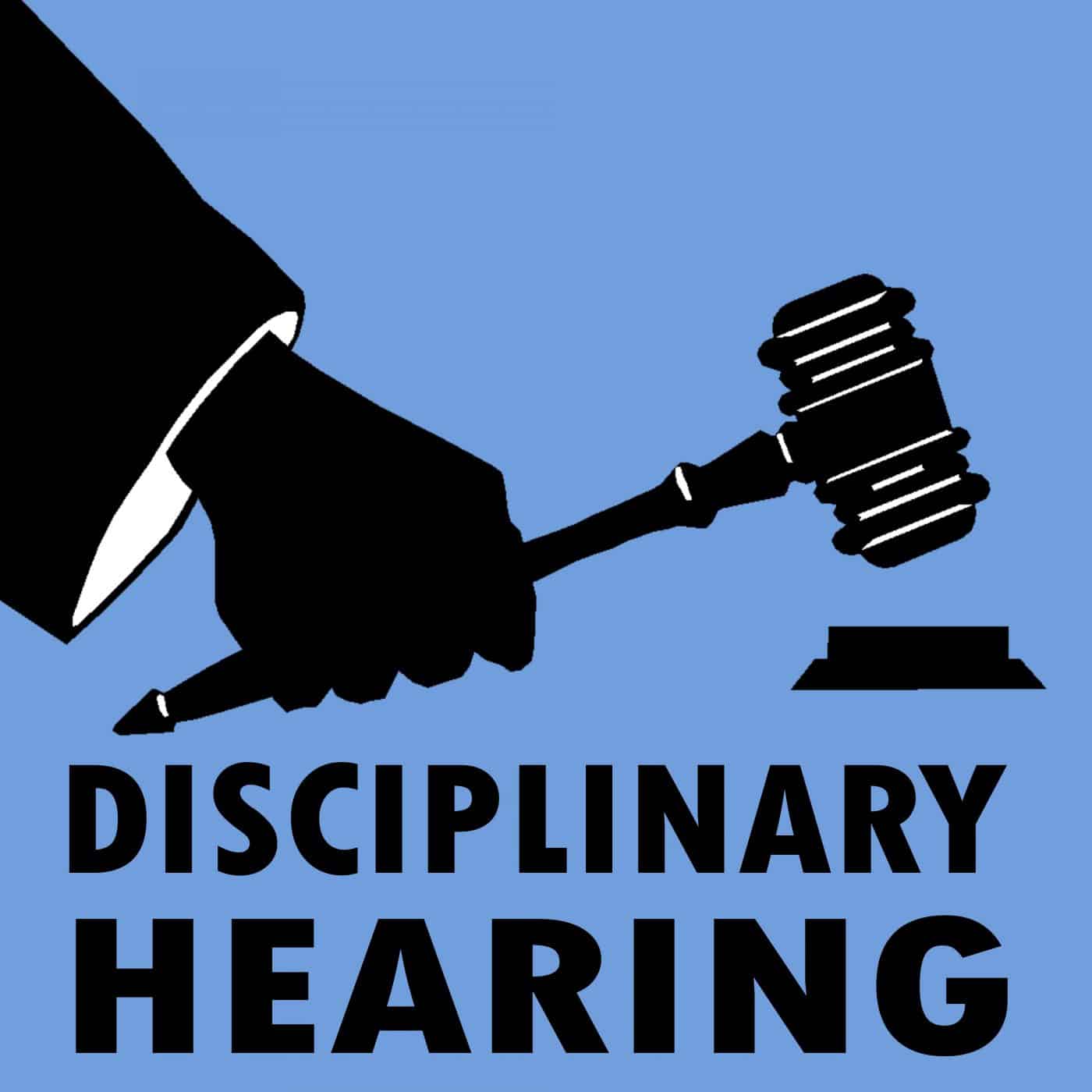Getting the disciplinary hearing right

11 Dec 2017
In order to establish the conduct employers expect from their employees in the workplace, all employers must adopt disciplinary procedures (according to the Code of Good Practice Schedule 8.3(1)). These rules must be consistent and in larger businesses disciplinary processes are expected to be more formalised in terms of disciplinary hearings.
What constitutes a disciplinary procedure?
There are no set guidelines as to what constitutes a proper disciplinary procedure.
In the Code of Good Practice it has been indicated that disciplinary procedures need to be conducted with as little legal formality as possible while still staying within the legal boundaries of the Labour Relations Act (1995 amended 2014), keeping consistency, and promoting progressive discipline in the workplace.
A real-world example
A recent decision handed down to the CCMA in the case of Mathabathe v Nelson Mandela Bay Metropolitan Municipality and another (hereafter the Mathabathe case), the employee was dismissed after a disciplinary hearing was held via written representations completed by both parties and handed in to be judged by an independent third party, i.e. a chairperson.
Was this fair?
The applicant’s legal representatives applied for postponing of the disciplinary hearing due to the fact that the employee had been booked off sick on the day she was given the charges. The presiding officer ruled that the matter proceed by evidence on affidavit, and set timeframes for the parties involved. The matter was referred to court whereupon the dismissal were regarded fair, due to the following reasons:
- Common law does not require a hearing before a dismissal, and the employee admitted that she was using the contract to substantiate her claim of unfair procedure due to the fact that her contract stipulated that she was entitled to a hearing before a sanction.
- The employee’s counsel had not raised any objections to the hearing being conducted through written presentations.
- The court further noted that according to the Code of Good Practice: Dismissal, the law requires that the employee states their case in order for fairness to be observed in the case of a sanction being handed down to an employee. Disciplinary hearings are not criminal trials and less formality is required in such an occasion.
- The court further ruled that there were no bias to the decision made as the independent chairperson allowed the employee the opportunity to state her case. As such the allegation of bias had been found to be an attack on the presiding officer not on the facts of the case.
- The court dismissed the case and awarded costs against the employee.
This is not the first time that the issue of written submissions has been brought to the attention of the labour court. In the case of Northam Platinum Ltd v Phooko NO and Others, an employee’s final written warning given after a safety-related incident was changed to that of a dismissal. The employee was asked to submit written representation as to why he should not be dismissed, after being given the dismissal. In this case, the written submissions were not in keeping with procedural fairness as the employee had not been given the opportunity to state his case before the sanction had been changed and handed down to him.
Why is this different?
It needs to be noted that in these cases, that vastly contrasts one another, the Audi Alterum Partem Rule can be distinguished in both. The first case indicated that both sides of the story had been heard and therefore the dismissal had been considered fair. However, in the second case this rule had not been adhered to and as such the procedure had been deemed unfair.
These cases shows us that while the Code of Good Practice: Dismissals does not indicate what or how the disciplinary procedure needs to be conducted, it would seem to be that if the true function of the disciplinary hearing is adhered to, the procedure would be fair. The true function of a disciplinary hearing is that the employee is given the opportunity to explain their side of the story before a sanction is issued, especially for highly serious matters such as charges that could lead to dismissal. The fairness issue was brought up in the case of Northam Platinum Ltd v Phooko NO and Others where the employee was first given the final written warning and then the final written warning was changed to a dismissal without allowing the employee the chance to state his side of the story, which has been demonstrated to be the incorrect way to conduct a disciplinary hearing through written representations.
If in the event that an employee is willing to go through a hearing via written submissions, the employer needs to give the element of fairness the utmost consideration and to allow for an independent chairperson to conduct proceedings in order to prevent allegations of bias.
See also: Dealing with employee misconduct and negotiated exits
(This article is provided for informational purposes only and not for the purpose of providing legal advice. For more information on the topic, please contact the author/s or the relevant provider.)
